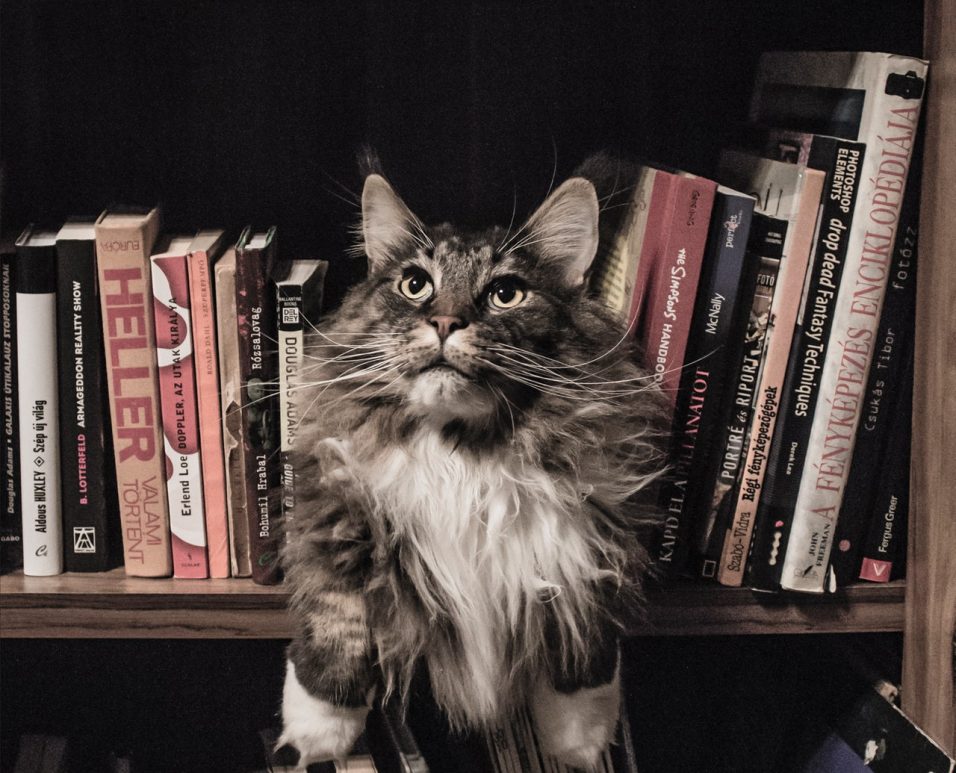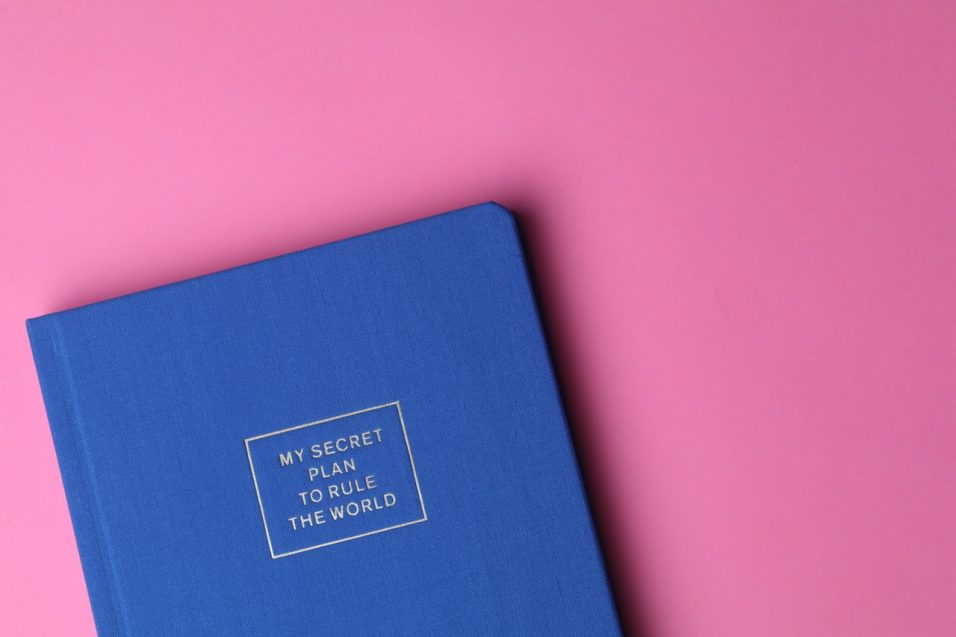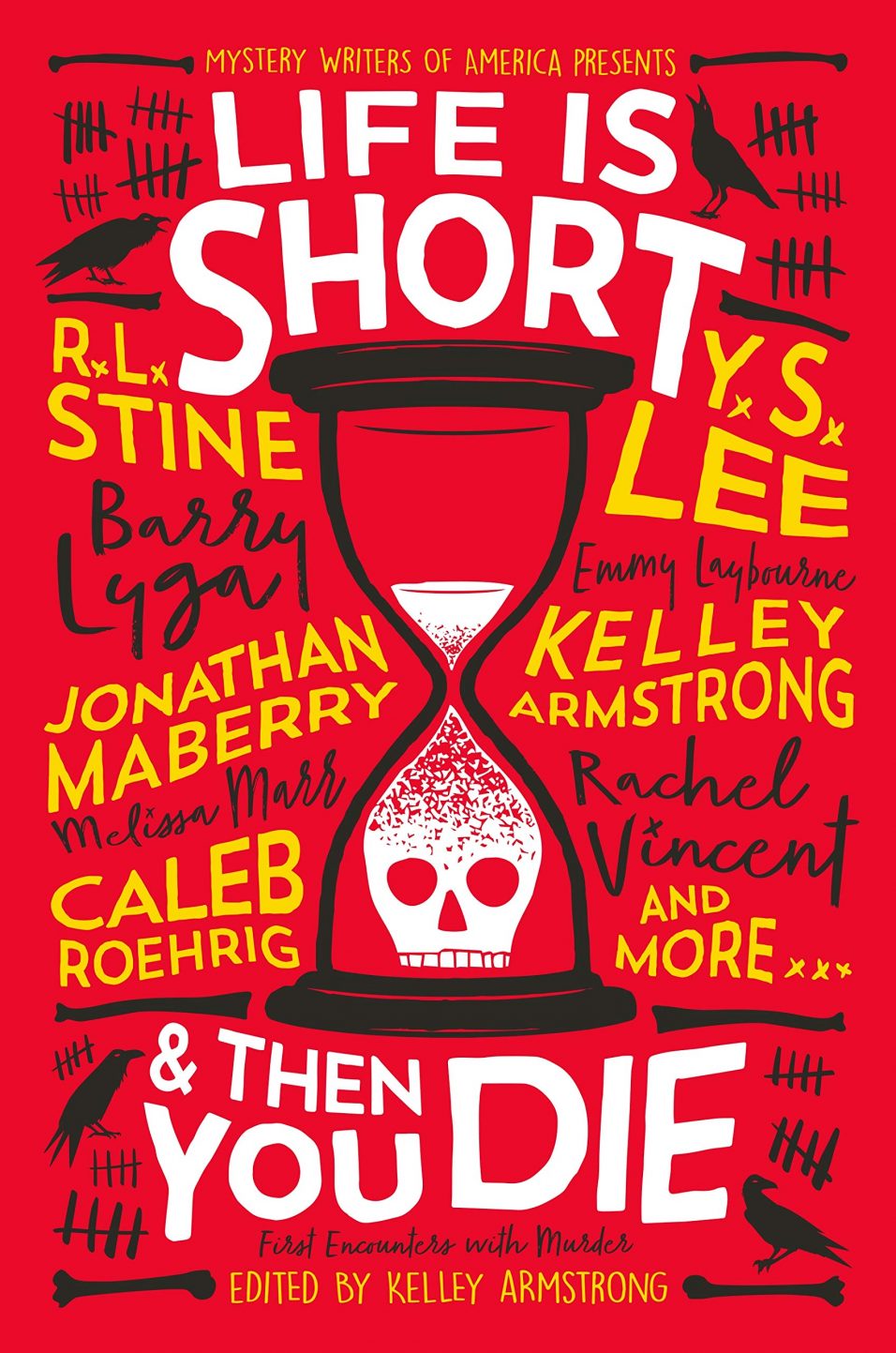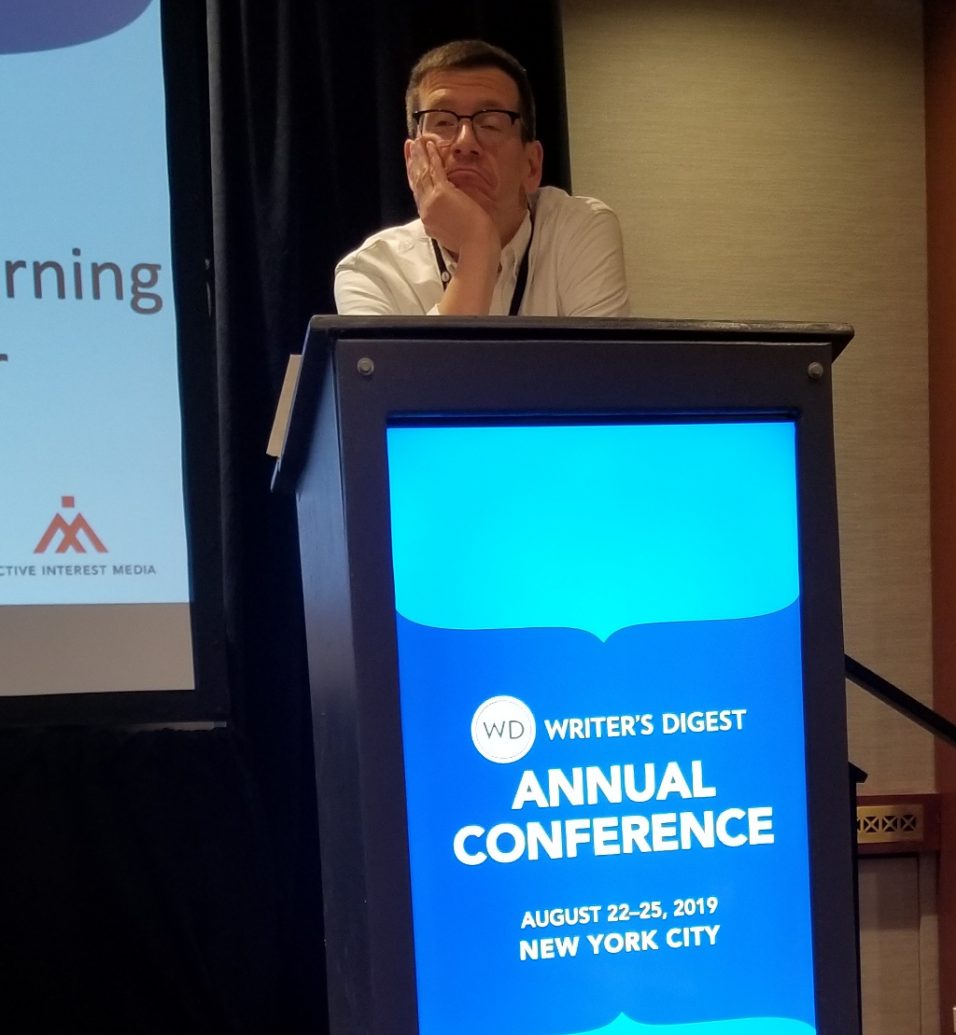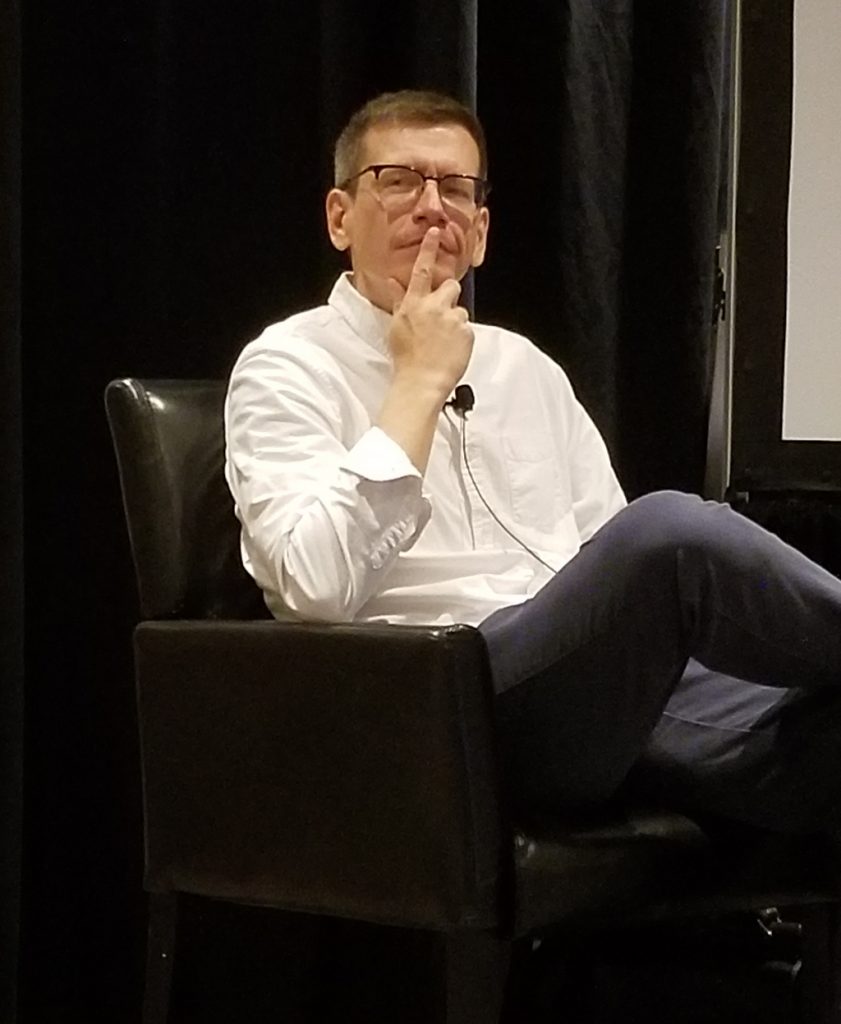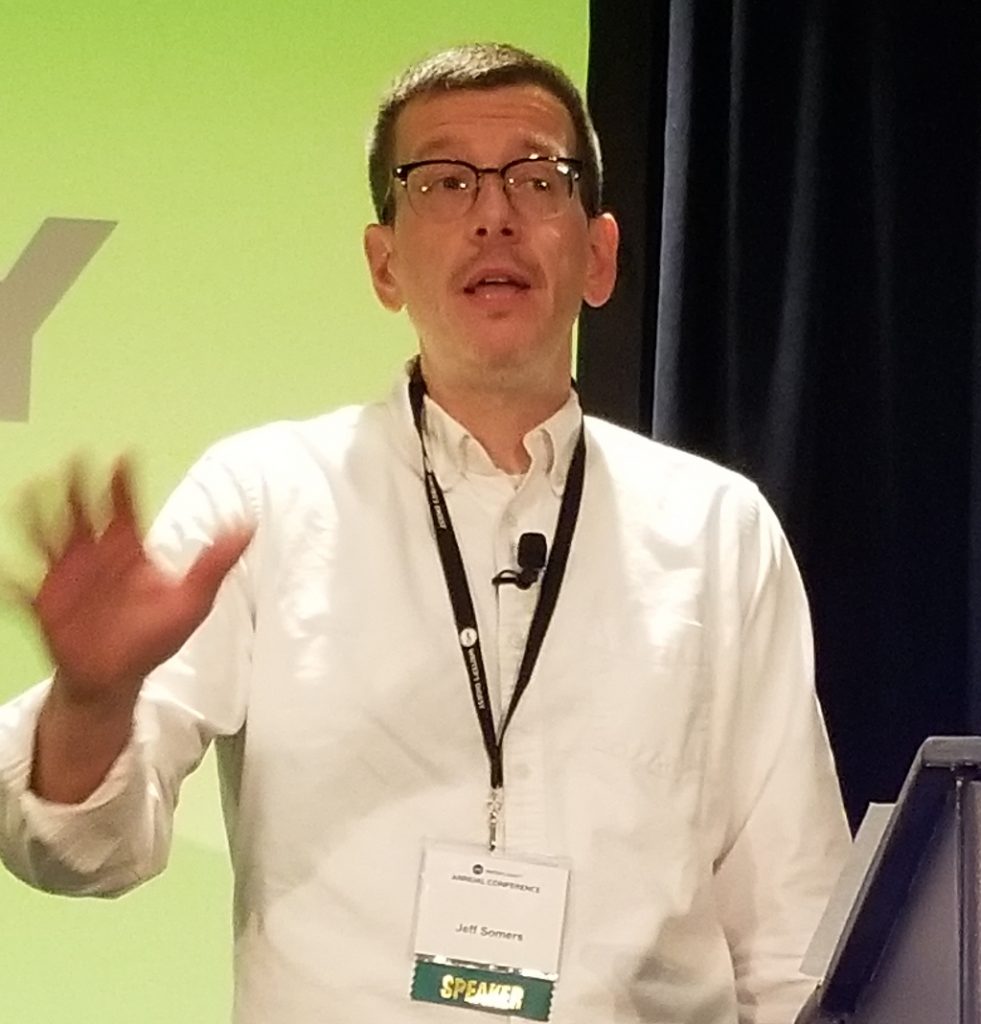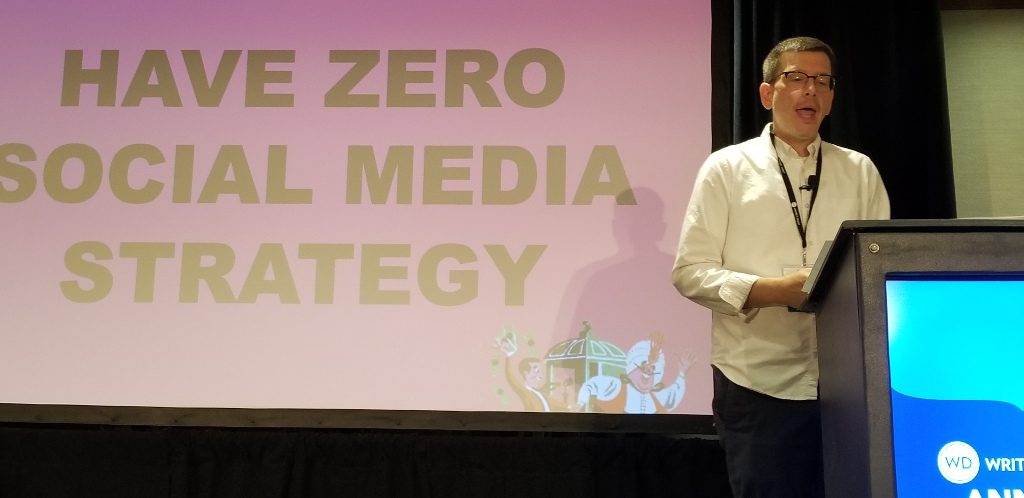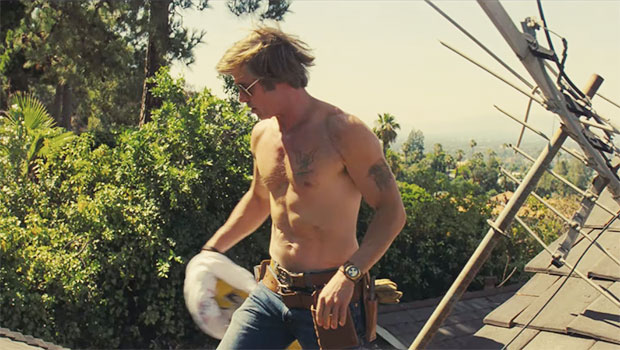Walking Away from the Fireworks Factory: When Sci-Fi Stories Abandon Their Premise

I’m somewhat ashamed to admit that there was a time in my life when most of my conversational gambits were direct quotes from The Simpsons; in fact, my friends and I could hold entire conversations using just lines from the first, oh, ten seasons of the show. One that still sticks with me is Millhouse’s anguished demand to know ‘When are they gonna get to the fireworks factory?!’ in Season Eight’s ‘The Itchy and Scratchy and Poochie Show,’ wherein the ostensible plot of the show-within-a-show is about going to such a factory, which never actually happens. Over the years it’s been an easy shorthand for stories that promise some exciting moment that seems to never arrive, either due to glacial pacing or simple bad writing.
Some stories, however, start at the Fireworks Factory—and then slowly back away from it. Every TV show, film, novel, or comic book has a premise that attracts you, the core bit of awesome at the center of the story that is the main reason you’re in the audience in the first place. When you go to see an action movie, you’re looking for the stunts, for the incredible fight scenes. When you read a horror novel, you’re there because you’ve been promised a terrifying monster, or a terrifying curse. Something terrifying, certainly. Most stories take a little time to warm up to that promise, to develop characters and build a world, and then, finally, deliver on that promise.
Other stories do the exact opposite. They start off with the cool part. And then they incrementally abandon their own premise, becoming an entirely different story.
The Infinite Unpacking
Sometimes this happens because the writers didn’t actually have any interest in the premise they sold you in the first place. Consider, for example, the HBO reboot of Westworld.
The Fireworks Factory, in this case, would be the sublime chaos of super-advanced robots gaining some form of sentience and rebelling against the humans who have been paying exorbitant fees for the privilege of abusing and violently damaging them. The original 1973 film, written and directed by Michael Crichton, has an expected structure: You’re introduced to Westworld while it’s operating as expected, you learn the rules of the place, and then you get the demented fun of watching everything spiral out of control into wonderful robot violence.
The reboot more or less starts there, with the malfunctions starting very early in Season 1, and a slow build to the robot apocalypse. Using multiple and deceptive timelines, the writers start off with the robots going haywire—and then, just when the massacre starts, the season ends, and in Season 2 you only get glimpses of it. If you were hoping for sequences of guests fleeing from murderous robots, too bad: There are almost none. You never get to the Fireworks Factory, because the show was never heading there in the first place. Instead, the writers are much more interested in the increasingly complicated philosophical underpinnings of their story—what is sentience? What is life?
That doesn’t make it a bad story. It makes it a different story, that will never serve up the imagined scenes that got people to tune in initially.
The U-Turn
Sometimes, there’s a detour on the way to the Fireworks Factory because the story just doesn’t work the way the writer expected. The thing about a story is that it has to work in two very different arenas: In conception—that is, on paper, as an outline and a sketch—and in reality, as an actual story. Sometimes the outline and the concept have to be abandoned because once you start writing it just doesn’t work.
A good recent example of this is Fear the Walking Dead. The spinoff from The Walking Dead was originally pitched as a prequel of sorts that would explore the way society collapses under the onslaught of zombies. The first episode was set about six months before the main series. For a lot of folks this was exactly the Fireworks Factory they wanted to go to, because often the most intriguing and exciting parts of a zombie story is the part where civilization slowly unspools. You start with the subtle signs—the dire news reports, the mysterious government decisions—and then bit by bit normalcy bleeds away, until eventually you’re all running for your lives and putting all those Apex Legends skills to good use blowing the heads off zombies.
But Fear the Walking Dead quickly began transforming into a show that actually isn’t all that different from the main program—just a bunch of people trying to not be eaten by zombies in a world that’s pretty much collapsed. This is partly due to the fact that the writers just didn’t give themselves enough runway to work with; societal collapse is a slow-burn story, and would have required that you delay the arrival of zombie hordes for a long time, or at least kept them peripheral. That’s tough to do in a TV series that’s about zombies, and so the story got there quick. But that’s a different Fireworks Factory altogether.
Later seasons saw the show retooled and revamped to accept this; they’ve brought on crossover characters from the main show and abandoned any pretense that it’s about a different phase of the zombie apocalypse. There’s still a lot of opportunity for interesting stories there, of course. It’s just not the story that early viewers thought they were going to get.
Runway
It’s easy, as a writer, to misjudge how far material will take you. Sometimes a single sentence in a plot outline will power hundreds of pages of manuscript. Sometimes a page of outline will yield a single, thin chapter. It’s difficult to judge stuff like that before you’re elbow-deep in the storytelling. In other words, writing a book is sometimes like planning a trip to a Fireworks Factory but traffic gets really bad so you take a random exit, or the factory is abandoned and filled with bats so you go to an alternate factory nearby. And sometimes you start off with what seems like a reasonable analogy and lost control of it completely.

